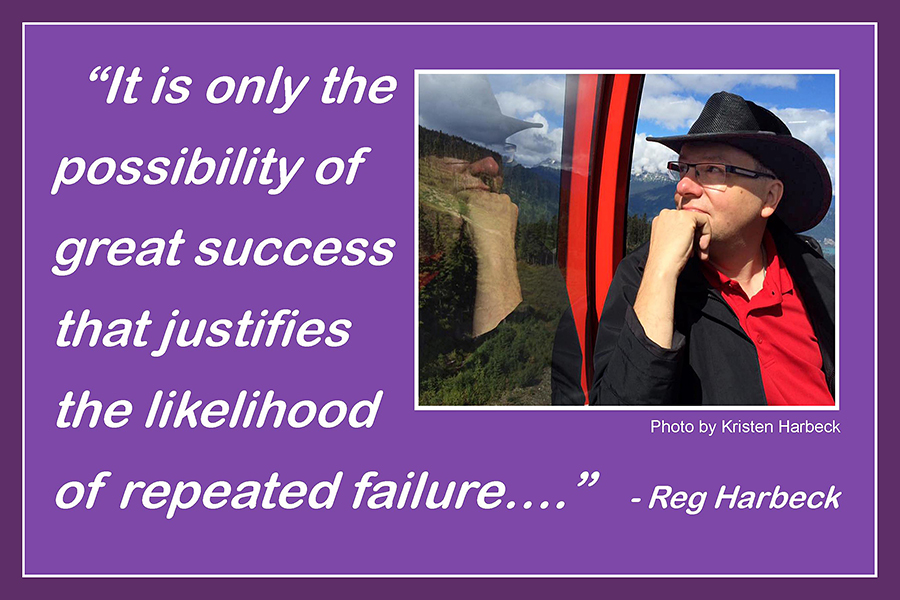
Tools, rules and innovation: rising above fear of failureCOFFEE WITH WARREN, with Warren Harbeck |

|
In view of the current importance of innovation in our always-creative foothills community, I’d like to revisit this topic first addressed by my older son Reg Harbeck, an Information Technology professional, in my July 18, 2019, column. Reg? I’VE ENJOYED the B.C. comic strip, originally by Johnny Hart, since I was quite young. It takes place in a theoretically impossible past when prehistoric humans and dinosaurs roamed the earth together as it addresses matters of modern relevance. This creative anachronism is so much part of the strip that even the original artist is now part of the past, as his grandson Mason Mastroianni has taken over the responsibility for it after Hart’s passing in 2007. One fun anachronism that was broached in a recent strip was the invention of a dishwasher, the punchline being that no sooner had the inventor begun loading it for the first time in history, when another character in the cartoon told him he was doing it wrong. In recent years, many people have reacted against the idea that there’s a wrong way to do things, such as using technological tools, leading to outcomes that range from spectacularly successful to horribly disastrous. Indeed, some outcomes are portrayed as both. As the saying goes, “To err is human; to really foul things up requires a computer.” You knew I was going to find a way to bring computers into this, didn’t you? Of course, they are the leading edge for trying new things and new ways of doing old things that often violate what we used to think of as fixed rules. That can be good if the old way was never particularly functional. As Bill Gates has famously pointed out, “automation applied to an inefficient operation will magnify the inefficiency.” Now, whenever we try something new, there is a significant element of risk, and it is only the possibility of great success that justifies the likelihood of repeated failure preceding it – as was the case with Thomas Edison’s process of discovering a worthy lightbulb that began with 1,000 failures. Of course, most rules for life work well enough and give us a solid foundation for healthy habits and positive results. Violating those rules for no other reason than being contrarian can lead to suffering that may not be readily resolved, particularly if we don’t have a constructive outcome in mind. But, when we do see an opportunity to make the world a better place, and we’re willing to endure significant initial failure before finding a new way forward, we can certainly hope for success. As famous excellence guru Tom Peters puts it, "Test fast, fail fast, adjust fast." Interestingly, the most successful outcome of such innovation generally involves establishing a new and better set of rules for dealing with the new and better discovery or invention. Consequently, it has never been about breaking rules, but about building on what works to find a new way, with new rules that work even better. Thus, even with seeking the best way to use an appliance, it all comes out in the wash. As a rule, I can live with that.
© 2023 Warren Harbeck |